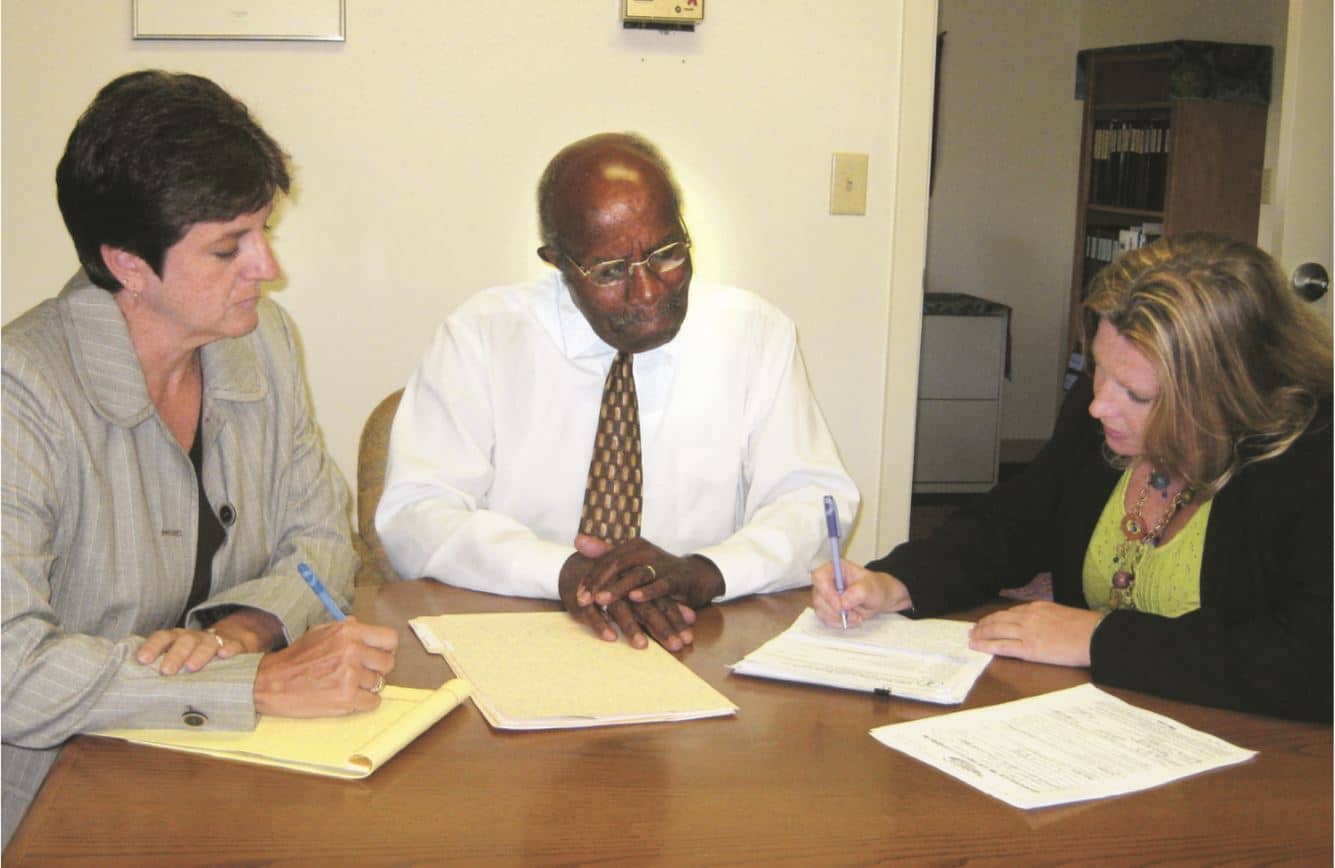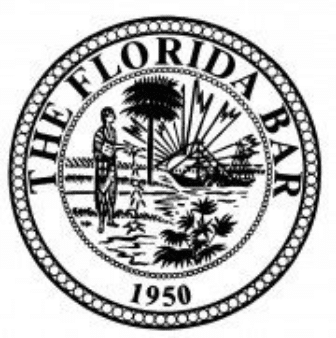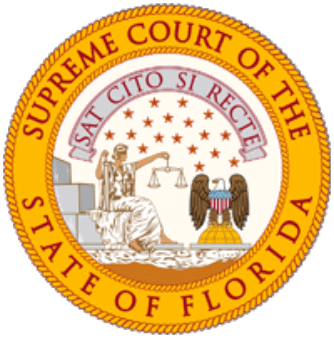
Understanding the importance of helping those who cannot afford a lawyer, Lawrence “Larry” Moncrief began pro bono work when he was a corporate lawyer in the ‘80s. Though he retired in 1991, Moncrief’s legal career was far from over. In fact, he still had decades of pro bono work left to do.
Now, at 91, Moncrief volunteers as a pro bono lawyer for Legal Aid Society of Palm Beach County (LASPBC). And, thanks to a Bar rule amendment that took effect in 2018, more retired judges, law professors and lawyers like Moncrief are eligible to provide pro bono services. The Florida Bar amended rules to expand the pool of individuals eligible to serve as pro bono emeritus lawyers for legal aid organizations.
“Larry continues to exemplify all that is best in the legal profession by serving every one of his clients with compassion and respect regardless of their circumstances or socio-economic status,” said Robert Bertisch, executive director of LASPBC. “He has impacted the lives of hundreds of disabled individuals by his outstanding legal skills and representation resulting in significant social security disability back and future awards. It has been an honor and privilege to have him.”
Moncrief makes his own hours, usually visiting the LASPBC office once a week to help three to four clients. The organization provides a place for pro bono lawyers to meet with clients as well as support staff as needed.
“I spend 10 hours a week on research,” said Moncrief. “I do most of my work at home.” Moncrief enjoys the flexibility of pro bono work, and the appreciation he gets from clients and organization staff.
“It makes me feel great,” Moncrief said. “My life is worthwhile. I still have something to consider – to help other people.”
Moncrief was particularly affected by a client who suffered a brain injury and could not work. When Moncrief began working on his case, the client was homeless.
“We got him social security disability, and they gave him retroactive pay,” Moncrief said. “With that, he got himself an apartment, and he lives well now because of our help. Otherwise he’d still be in the street.”
While Moncrief’s expertise was in corporate law, his pro bono work has focused on social security disability appeals. He wasn’t hesitant to try out a new practice area.
“In law school, you have a very broad education in very different fields. Lawyers learn how to handle cases of all kinds in law school,” Moncrief said. “So, even though I specialized in corporate law, I knew how to handle cases. I attended a couple seminars that were helpful, and I read the books and read the law.”
“Retired attorneys sometimes worry that they will be asked to handle a case outside of their experience or comfort level,” said Kimberly Rommel-Enright, supervising attorney of LASPBC’s Pro Bono Project. “We provide training and mentoring in areas of the law that they may not initially feel comfortable handling. We can also pair them with a staff attorney who has knowledge in that particular area, and they can handle a case with a team approach. In addition, we have opportunities such as clinics and intake that do not require representation.”
Moncrief wants other lawyers to know they are needed.
“You can help a lot of people out there who need legal aid, who don’t have the money to afford it,” he said. “You have expertise that could help. Get back in the game.”
The Bar rules encourage inactive and retired lawyers to provide pro bono service and specify that lawyers who have voluntarily chosen inactive status remain ‘members in good standing.’ The rule changes also provide that retired judges and current or former law professors, among others, may register as emeritus lawyers to provide pro bono services.
In December 2023, The Florida Bar Foundation changed its name to FFLA. Posts prior to this date contain our former name.




